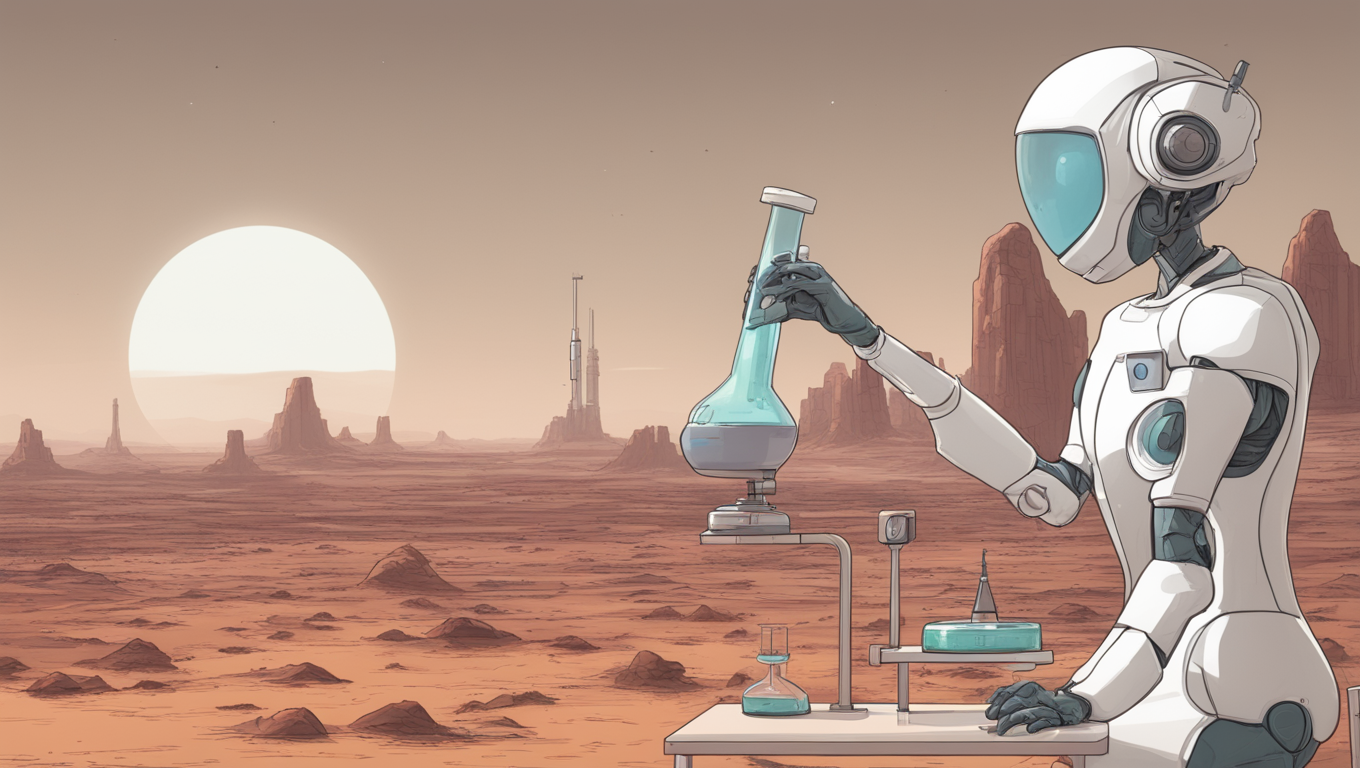Scientists have developed a groundbreaking robotic artificial intelligence (AI) “chemist” that has the potential to make Mars habitable. The AI chemist utilizes materials found on Mars to synthesize a catalyst that can convert water into oxygen, an essential process for creating a livable environment. The researchers, including experts from the Chinese Academy of Sciences, have demonstrated that the AI chemist can successfully create an “excellent catalyst” using Martian meteorites in an unmanned setting.
Previous studies have shown that generating oxygen through the decomposition of water using solar power and catalysts is one of the most effective ways to make Mars more habitable. Transporting these catalysts from Earth would be costly, which is why scientists are exploring methods to synthesize them using Martian materials. The AI chemist plays a crucial role in this process.
First, the robot chemist analyzes the chemical composition of Martian ores using a laser-based instrument called Libs. It then performs tasks such as weighing, preparing solutions, and separating the necessary catalyst material from liquid. The collected data is sent to the computational AI “brain” for processing, where the processing center runs simulations to predict the structure and catalytic activity of the metal compound. Furthermore, the AI chemist is capable of quickly predicting the catalyst’s activities in various compositions.
The recent study demonstrates that the AI chemist can create an excellent catalyst using five types of Martian meteorites under unmanned conditions. To ensure the catalyst’s efficacy, it was tested at the temperature of Mars (-37 °C / -34.6 °F), and scientists confirmed that it could produce oxygen consistently without degradation. The efficiency of the catalyst synthesis process is remarkable, as the robot chemist can accomplish in hours what would take a human chemist 2,000 years to achieve. With just 15 hours of solar irradiation, the AI chemist can produce a sufficient concentration of oxygen needed for human survival.
Study co-author Jiang Jun highlights the significance of this breakthrough technology, stating, “In the future, humans can establish an oxygen factory on Mars with the assistance of the AI chemist. This brings us one step closer to achieving our dream of living on Mars.”
This development has immense implications for the future of space exploration and colonization. The AI chemist’s ability to synthesize catalysts on Mars using local materials significantly reduces the cost and logistical challenges associated with transporting them from Earth. The self-sufficiency of the robot chemist also allows for continuous production of oxygen, ensuring a sustainable source of breathable air for the Martian colonizers.
The AI chemist represents yet another example of how artificial intelligence is augmenting human capabilities and revolutionizing various industries. Its remarkable efficiency, accuracy, and the ability to carry out complex tasks in extreme conditions make it an invaluable tool in extraterrestrial exploration. As we continue to push the boundaries of scientific advancement, the AI chemist brings us one step closer to the possibility of establishing a human presence on Mars.





Use the share button below if you liked it.